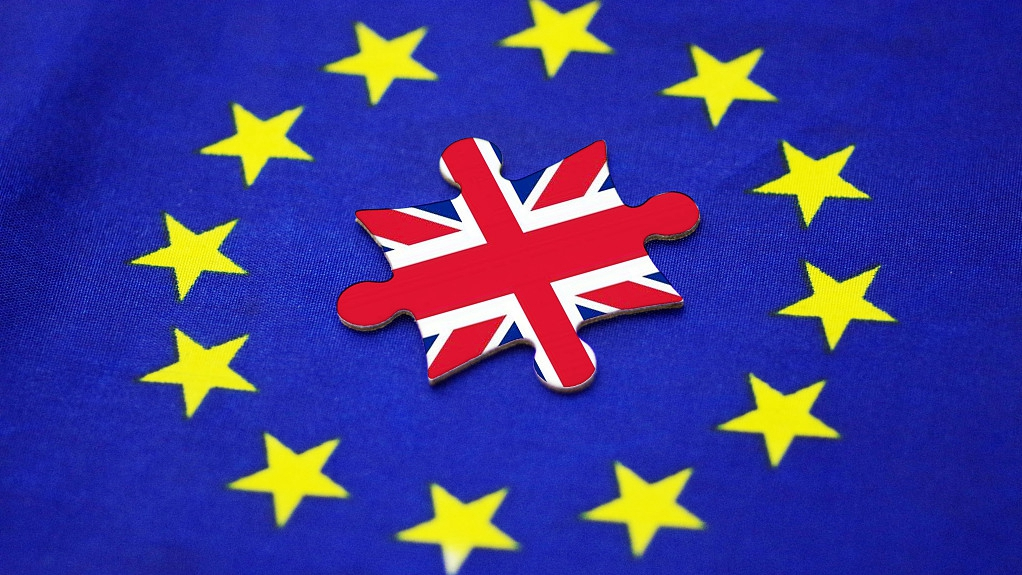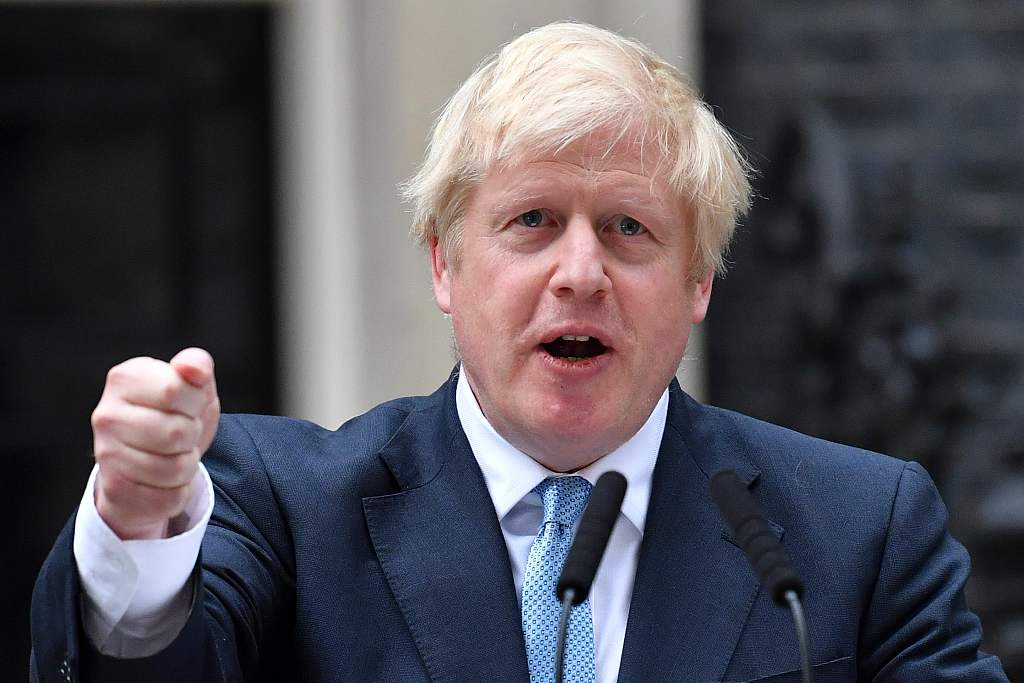

Editor's note: Chris Deacon is a postgraduate researcher in politics and international relations at the University of London and previously worked as an international commercial lawyer. The article reflects the author's opinion, and not necessarily the views of CGTN.
British Prime Minister Boris Johnson spoke on the steps of Downing Street on Monday evening to outline his plan for the run-up to the Brexit deadline of October 31. Contrary to the expectations of some, he did not call a snap general election; but – based on a closer reading of his words – this still seems a highly likely possibility.
Members of Parliament (MPs) opposed to a no-deal Brexit also published on Monday evening the legislation that they will attempt to move in Parliament on Tuesday which will attempt to avert the UK leaving the European Union without a deal. It instructs Johnson to seek an extension of the Article 50 process until the end of January and, if Brussels suggests any alternative date, to agree to this instead.
It appears likely that this legislation will receive the support of a majority of MPs. Almost all opposition MPs will likely vote in favor, and multiple MPs from Johnson’s governing Conservative Party – including former ministers from Theresa May’s government – have indicated their support too.
This comes in spite of the fact that Johnson has threatened his MPs with expulsion from the Tory Party if they vote against the government, in the process denying them the opportunity to stand for the party again at the next election. It was clearly hoped that this threat would worry such MPs enough to change their minds, but it appears to have made them even more resolute.
Johnson claimed on the steps of Downing Street that he did not believe the legislation would pass, but even if it did, under no circumstances would he personally seek an extension of Article 50. The unspoken implication of this is that, if the legislation passes, he will call a snap election to seek a new mandate for his plan from the public.
This course of action, however, is not as simple as it sounds. According to the Fixed Term Parliaments Act – a law brought in during the 2010-2015 coalition between the Conservatives and Liberal Democrats to attempt to solidify the arrangement – prime ministers can no longer simply dissolve Parliament and call an election.

Britain's Prime Minister Boris Johnson delivers a statement outside 10 Downing Street in central London on September 2, 2019. /VCG Photo
Instead, two-thirds of MPs must vote for the action, or the government must lose a vote of confidence. This means that – unless Johnson wishes to propose a motion of no confidence in his own government (something that seems unthinkable, but perhaps nothing is unthinkable in British politics these days), he will need the main opposition Labour Party to vote for the election.
In normal times, an opposition party would jump at the chance to hold such an election, but many opposition MPs opposed to a no-deal Brexit are concerned. Rumors were rife on Monday that Johnson’s government would engage in the deception of stating that the election would be held before the Brexit deadline at the stage of the vote, only to then change this by proclamation to a date after Brexit – thereby ensuring that the UK leaves without a deal.
On Monday, former Prime Minister Tony Blair referred to this as an “elephant trap” and warned Labour leader Jeremy Corbyn not to fall for the trick. This will be a difficult call for Corbyn, who has demanded an election for many months now.
If an election is held, it is of course impossible to predict at this stage what the result might be, and exactly what impact this will have on Brexit. But if MPs pass their anti-no-deal legislation and do not vote for an election, Johnson’s pledge not to extend Article 50 will collide with the law of the land.
Legal action against Johnson’s government will almost certainly result and, provided he is not able to rely on any technicality to evade the legislation, the courts may hold him or another minister in contempt if they refuse to go to Brussels and obtain the extension. This would be a deeply messy episode in British politics, even in comparison to recent events.
The next move, therefore, will be for MPs to try to pass their legislation thwarting Johnson’s plans. If they are successful, we will likely see Johnson attempt to hold an election – but it will be up to MPs once more to decide whether this goes ahead.
In his speech on Monday evening, Johnson wanted to show the public that he does not want to hold an election, but might be forced to do so. In reality he knows that this may be his only salvation. As Downing Street insiders have been repeating, “extension is extinction” for Johnson and his Conservative Party. He will likely do anything he can to avoid it.
(If you want to contribute and have specific expertise, please contact us at opinions@cgtn.com)

Copyright © 2018 CGTN. Beijing ICP prepared NO.16065310-3
Copyright © 2018 CGTN. Beijing ICP prepared NO.16065310-3